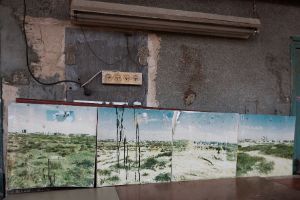
Ottorino Respighi
Ottorino Respighi's (1879-1937) central artistic concern was the search for new paths for Italian music alongside opera, which dominated musical life and which Respighi by no means neglected, but did not see as the only possibility for artistic creation. He had a distanced attitude towards New Music.
Respighi was born in Bologna, where he also began his professional career as a violist in the opera orchestra. Between 1900 and 1903, Respighi had various seasonal engagements in St. Petersburg and Moscow, where he took lessons from Nikolai Rimsky-Korsakoff. After his return to Bologna, Respighi began to work intensively on Italian music of the 17th and 18th centuries. Among other things, he created an orchestral version of Monteverdi's „Lamento d'Arianna“, whose premiere in Berlin in October 1908 was an important success and brought him general recognition as an imaginative arranger of older music. A short time later, Respighi was appointed professor of composition, first in Bologna and from 1913 in Rome.
11 February 1918 was a turning point in Respighi's life. The triumphant Milan performance of the symphonic poem "Fontane di Roma" (The Fountains of Rome) under Arturo Toscanini made him the most prominent Italian composer of instrumental music since Antonio Vivaldi. By 1928, Respighi had followed the "Fontane di Roma" with two further, similarly conceived pieces about the pines and the festivals of Rome, some of which are characterised by his exploration of Gregorian music.
Respighi's relationship to Italy's fascist movement, which gladly utilised his music, is controversial. As far as can be seen, Respighi's reaction to this was cold and by no means enthusiastic. Nevertheless, he was persistently associated with the fascist regime. The composer, who had been in poor health since early 1936, died in the summer of 1937.
As of: March 2024
